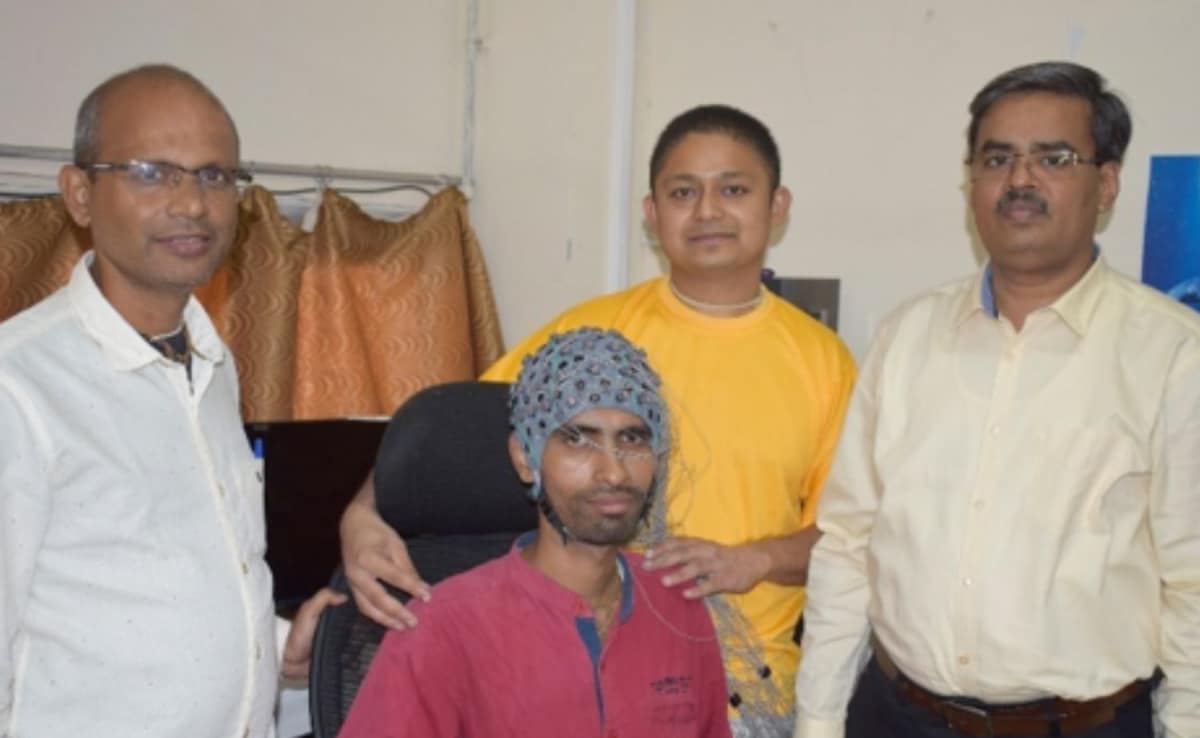
- Indian classical Ragas can influence brain activity, enhancing attention and emotional regulation
- Raga Darbari improves focus, while Raga Jogiya helps manage emotional overwhelm and grief
- Therapeutic use of Raga, or Raga Chikitsa, has been validated scientifically for mental wellness
Indian classical Ragas can influence brain activity, a study conducted by the Indian Institute of Technology Mandi (IIT-Mandi), in collaboration with IIT Kanpur, revealed. The study, published in Frontiers in Human Neuroscience, found that the Ragas enhance attention and provide emotional regulation and mental stability. Stress, mental overload and emotional disconnection are becoming common across all age groups, with people seeking meaningful and sustainable ways to find emotional balance.
"This is where the Indian classical musical system stands out-not just as an art form, but as a highly refined, structured science of emotion and consciousness," Prof. Laxmidhar Behera, Director of IIT Mandi, told NDTV. "Each Raga is crafted to evoke specific emotional states (Nav Rasa), guiding the mind from tension to tranquillity, and from heaviness to clarity and joy."
Also Read | Watch: Genetically Modified Dire Wolves Double In Size In 6 Months
The study, which included 40 participants, found that Indian classical music guides the brain into more stable and focused patterns, and exposure to Ragas leads to consistent transitions in neural activity, suggesting music's potential as a tool for mental wellness.
The research employed advanced EEG microstate analysis, which is a real-time brain-mapping technique that captures momentary but meaningful patterns of neural activity. These "microstates" often last just tens of milliseconds and represent the brain's transient modes of operation, such as attention and emotional engagement.
The study highlights the therapeutic potential of Indian Classical music, rooted in cultural wisdom, for developing personalised music-based mental health support tools.
Also Read | Study Reveals How Eating Cheese Might Be Linked To Your Nightmares
The measurable impact of specific Ragas on these brain states makes this study exceptional. For example, Raga Darbari increases attention-related microstates while reducing mind-wandering, indicating deeper focus and cognitive clarity. Recommended for improving focus before exams or important meetings.
Raga Jogiya, on the other hand, enhances attentional networks and activates emotion-regulation microstates, enabling listeners to process emotions with calm and composure.
The research team suggests that listening to Raga Darbari before exams or important meetings may improve focus, while Raga Jogiya could help manage emotional overwhelm or grief.
Ashish Gupta, the first author of the study, emphasised that the shifts observed in neural activity were not random. "The data showed repeatable, consistent transitions after exposure to the Ragas, suggesting Indian Classical music can serve as a powerful tool for mental wellness," he said.

Prof. Laxmidhar Behera (far left), Dr. Ashish Gupta (Centre), and Prof. Braj Bhushan (far right) during the EEG-based music and brain experiment.
Photo Credit: Image provided to NDTV by IIT-Mandi
Is it a workable model?
Prof Behera told NDTV that it is "absolutely" a workable model, with its foundation already strong. "The therapeutic use of Raga, often termed "Raga Chikitsa," has existed in India for centuries," he said. "What's new today is the scientific validation of its effects on the brain and emotions through tools like EEG and neuroimaging. The core science is robust and shows consistent patterns of cognitive and emotional benefits."
Prof Behera said that now a "structured implementation" is needed, such as designing music-based therapeutic modules that are customised for different contexts-education, corporate stress, emotional care, or clinical support.
"With thoughtful scaling, collaboration between scientists, therapists, and musicians, and integration into digital platforms or wellness apps, this ancient practice can become a globally accessible and scalable tool for mental well-being," he added.
Professor Braj Bhushan of IIT Kanpur, co-author of the study, said in a press release, "This work reveals the remarkable capacity of Indian Classical music to engage cognitive and emotional systems. It opens a new path for developing personalised, music-based mental health support tools rooted in India's cultural wisdom."
A parallel study on Western participants confirmed similar effects of classical music on brain microstates, indicating the universal neurological power of classical music.
Track Latest News Live on NDTV.com and get news updates from India and around the world

